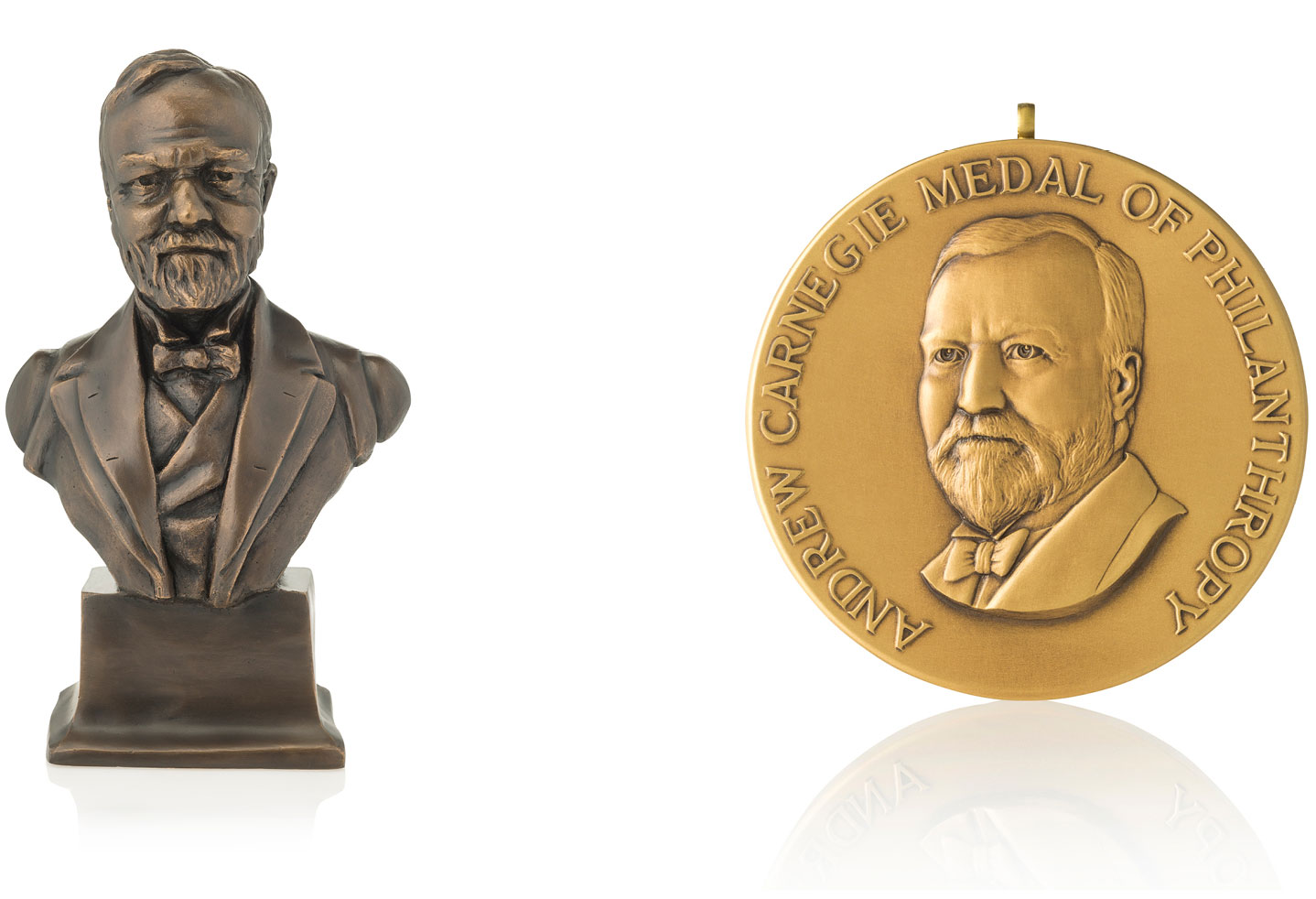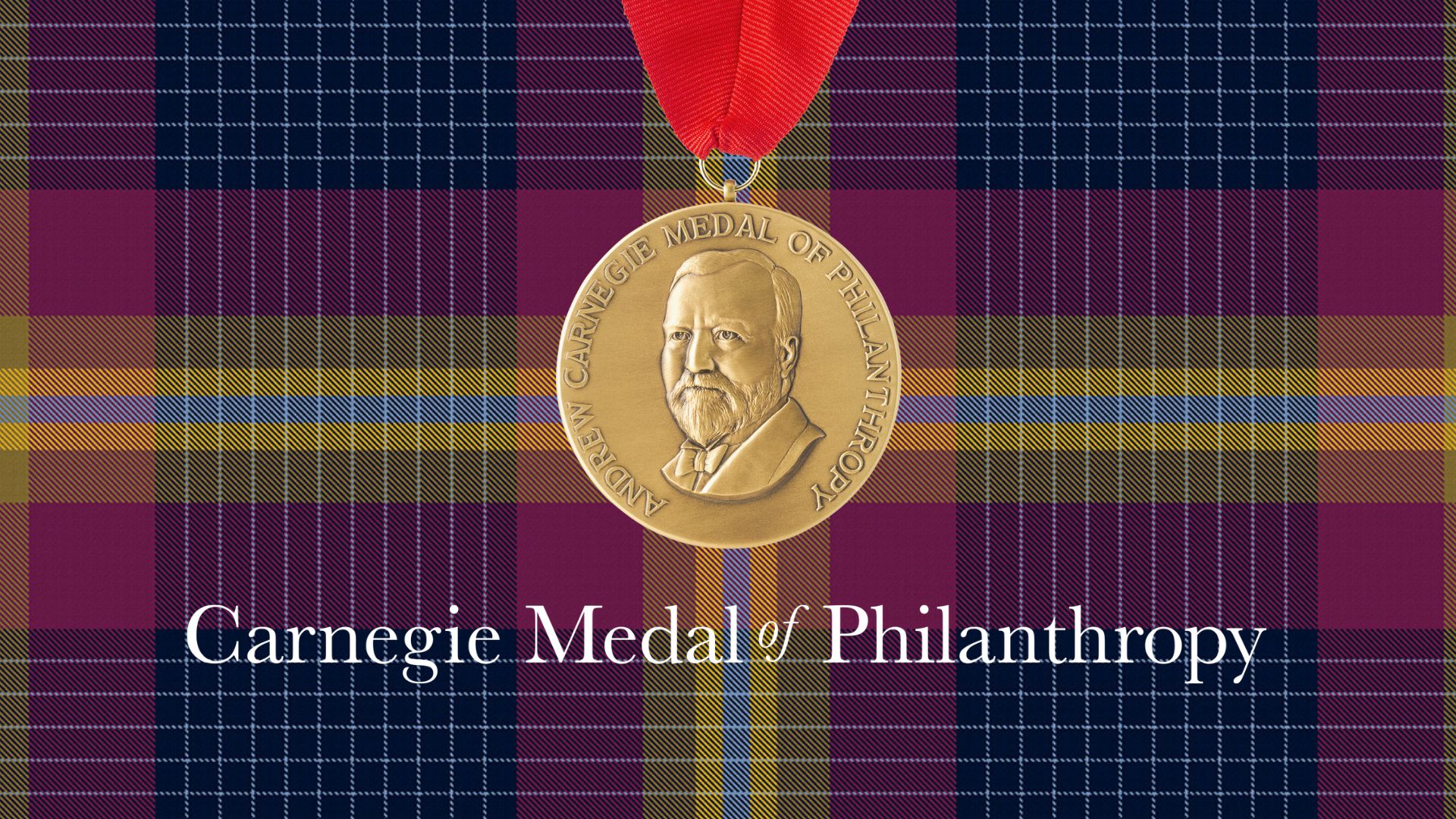ABOUT THE MEDAL
The Carnegie Medal of Philanthropy, bestowed by the Carnegie family of institutions since 2001, seeks to inspire a culture of giving by recognizing outstanding philanthropists who reflect the values of Andrew Carnegie and his philosophy of giving—that the surplus wealth of the few should be administered “for the good of the people.”
Having amassed what was one of the greatest fortunes of his time, Carnegie, the legendary Scottish-American industrialist, decided to reinvest his fortune in society with the stated goal of doing “real and permanent good in this world.” His philosophy of giving was underpinned by the belief that with wealth comes responsibility. He believed that philanthropy’s main aim, as opposed to charity’s, was to address the causes of social ills rather than their manifestations. Carnegie sought to make individuals and society independent rather than dependent. As he so eloquently put it, “Wealth is not to feed our egos, but to feed the hungry and to help people help themselves.”
The Carnegie Medal of Philanthropy honorees, past and present, personify the ideals of Carnegie’s vision, seeking through their giving to make the world a better place for all. They exercise the same wisdom, foresight, and passion in their philanthropic activities as they have in their highly successful professional endeavors. They are catalysts for good who are inspirations to others. They are models for the next generation of philanthropists.
In 2022, the Carnegie Catalyst Award was created in memory of the late Vartan Gregorian, past president of Carnegie Corporation of New York and cofounder of the Carnegie Medal of Philanthropy. The Catalyst Award honors a nonprofit organization that has been exceptionally effective in catalyzing people’s inherent desire to help one another—an ideal embodied through Gregorian’s life and work.
The Carnegie Medal of Philanthropy provides a unique platform for discussion regarding philanthropy’s structure, influence, and trends, both in the United States and abroad.
NEWS RELEASES
FAQ
Who awards the Carnegie Medal of Philanthropy?
The Carnegie Medal of Philanthropy is awarded by organizations founded by Andrew Carnegie.
The selection committee is comprised of four members of the steering committee that organized the inaugural medal in 2001— Carnegie Corporation of New York, the Carnegie Endowment for International Peace, Carnegie Institution for Science, and the Carnegie Trusts for the Universities of Scotland — along with two additional Carnegie institutions, which rotate onto the committee each award cycle. William Thomson, great-grandson of Carnegie and former chair and honorary president of Carnegie UK, is honorary chair of the committee.
What is the criteria for receiving the Medal of Philanthropy?
First, medalists must have a vision of philanthropy that reflects the ideals and breadth of Andrew Carnegie, the man the medal celebrates. The work of the philanthropist must also have a sustainable track record of giving. Finally, medalists must have made a significant impact on a particular field, nation, or group of people, either nationally or internationally.
What do recipients of the Medal of Philanthropy receive?
Each recipient receives a bust of Andrew Carnegie — an original work of art cast in bronze and created especially for the award — and a bronze medal.


